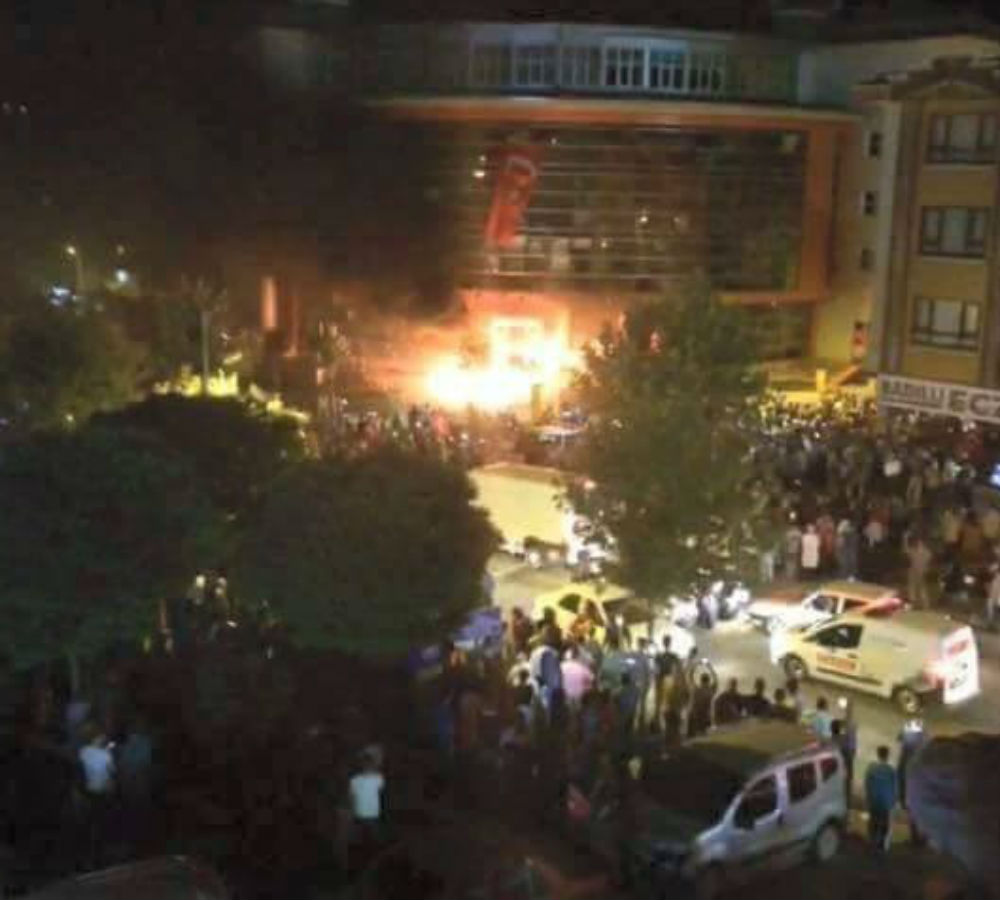A number of anti-coup protesters, who took to the streets after President Recep Tayyip Erdoğan’s call, vandalized a school building established by the sympathizers of the Gülen movement, on Saturday night.
Protesters threw stones at the Mehmet Eroğlu Primary School within the Samanyolu College in the Pursaklar district of Ankara capital and set some parts of the school building on fire.
Police officers, who arrived at the school upon notice of the concerned citizens, fired their guns into the air to disperse the crowd but were unable to control the group of protesters.
Riot police, armored water cannons (TOMA) and fire department members were also dispatched to the area to support the police and extinguish multiple fires. Protesters left the school after putting a Turkish flag one the building.
Attack on the school established by the sympathizers of the Gülen movement came after Erdoğan and Prime Minister Binali Yıldırım have accused the movement of being behind the military coup, in which a group of army personnel conducted air strikes over the Parliament and the presidential palace early Saturday morning.
Meanwhile, reports say that the Gülen movement does not seem to have such a massive influence over the Turkish military, which is known for its Kemalist roots that is against the Gülen movement. The rebel soldiers who attempted to stage a coup named themselves as “Council of Peace At Home,” in a declaration they forcibly had delivered by the state-run broadcaster TRT on Friday night. “Peace at home, peace in the world” is a famous saying by Mustafa Kemal Atatürk, the founder of the Republic of Turkey.
The Gülen movement is a grassroots social initiative inspired by Scholar Fethullah Gülen and carries out charitable activities all around the world, including education, distributing humanitarian aid and providing drinking water especially in African countries.
Since a massive corruption scandal that implicated then-ministers of the Cabinet erupted on Dec. 17, 2013, Erdoğan and the AK Party government claimed that the graft investigation was a “coup attempt” against his government and accused the Gülen movement of being behind it. The sons of ministers, well-known business people, a district mayor, a director of a state-owned bank, and many high-profile figures, who were arrested as part of the investigation, were released and the prosecutors who initiated the case were later imprisoned as a result of political interference. However, four Cabinet ministers were forced to resign.
The major graft case was closed by other prosecutors who replaced them, with all the charges against politicians and business people being dropped. A parliamentary investigation against the four ministers was also dropped with AK Party votes. The graft probe had implicated then-Prime Minister Erdoğan, members of his family and senior Justice and Development Party (AK Party) figures.



